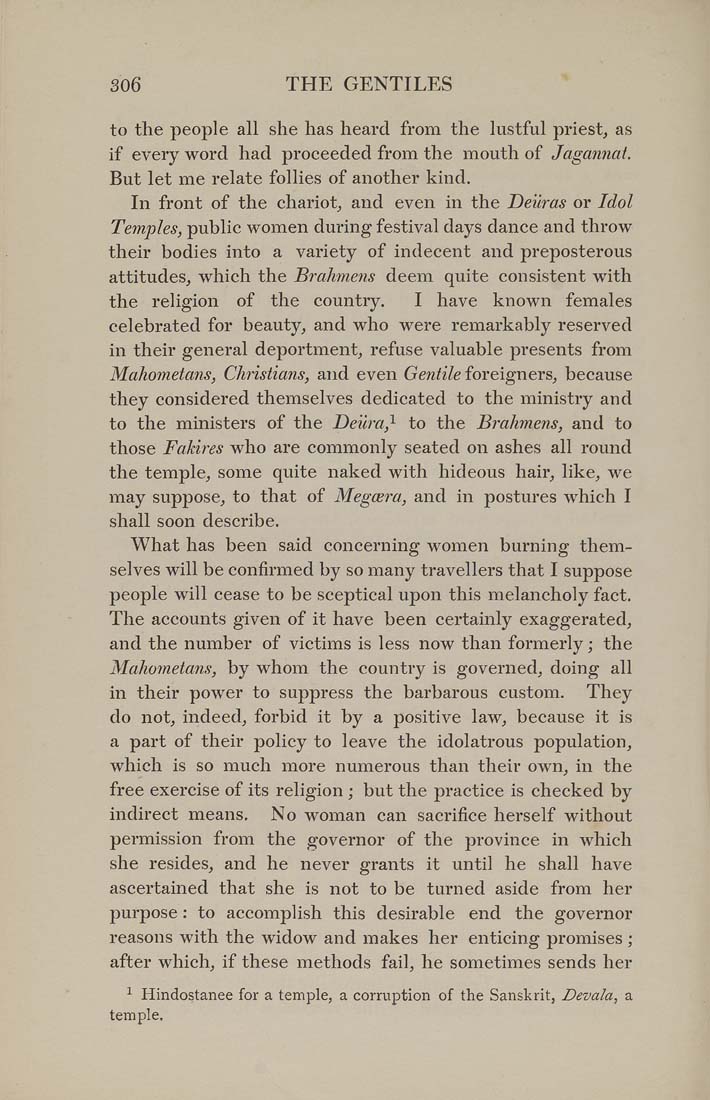306 THE GENTILES
to the people all she has heard from the lustful priest, as
if every word had proceeded from the mouth of Jagannat.
But let me relate follies of another kind.
In front of the chariot, and even in the Deilras or Idol
Temples, public women during festival days dance and throw
their bodies into a variety of indecent and preposterous
attitudes, which the Brahmens deem quite consistent with
the religion of the country. I have known females
celebrated for beauty, and who were remarkably reserved
in their general deportment, refuse valuable presents from
Mahometans, Christians, and even Gentile foreigners, because
they considered themselves dedicated to the ministry and
to the ministers of the Deiira,^ to the Brahmens, and to
those Fakires who are commonly seated on ashes all round
the temple, some quite naked with hideous hair, like, we
may suppose, to that of Megwra, and in postures which I
shall soon describe.
What has been said concerning women burning them¬
selves will be confirmed by so many travellers that I suppose
people will cease to be sceptical upon this melancholy fact.
The accounts given of it have been certainly exaggerated,
and the number of victims is less now than formerly; the
Mahometans, by whom the country is governed, doing all
in their power to suppress the barbarous custom. They
do not, indeed, forbid it by a positive law, because it is
a part of their policy to leave the idolatrous population,
which is so much more numerous than their own, in the
free exercise of its religion ; but the practice is checked by
indirect means. No woman can sacrifice herself without
permission from the governor of the province in which
she resides, and he never grants it until he shall have
ascertained that she is not to be turned aside from her
purpose: to accomplish this desirable end the governor
reasons with the widow and makes her enticing promises;
after which, if these methods fail, he sometimes sends her
^ Hindostanee for a temple, a corruption of the Sanskrit, Devala, a
temple.
|








